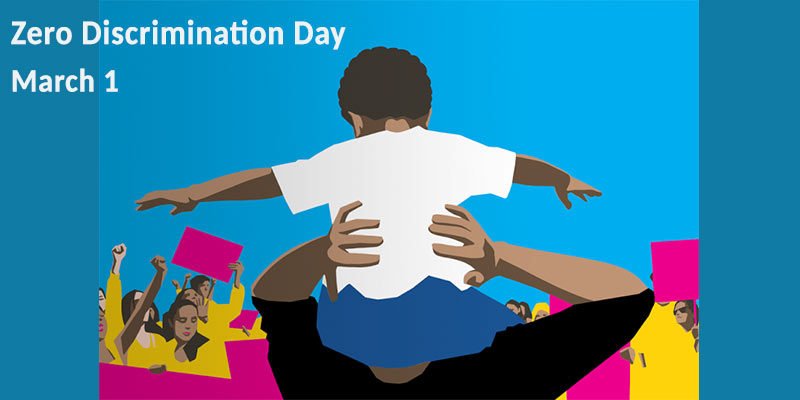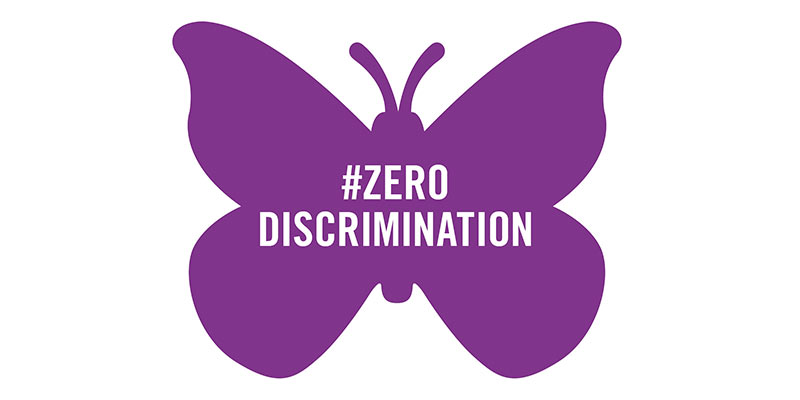- World
- Mar 01
Explainer / Zero Discrimination Day
• The United Nations observes March 1 as Zero Discrimination Day. The Day celebrates the right of everyone to live a full and productive life, and live it with dignity.
• It highlights how people can become informed about and promote inclusion, compassion, peace and, above all, a movement for change.
• Discrimination continues to undermine efforts to achieve a more just and equitable world and causes pain and suffering for many. Discrimination has many forms, from racial or religious discrimination to discrimination based on gender, sexual orientation or age, and to bullying at school or at work.
• The UN first observed Zero Discrimination Day on March 1, 2014, after UNAIDS, a UN programme on human immunodeficiency virus (HIV) and Acquired Immune Deficiency Syndrome (AIDS), launched its Zero Discrimination Campaign on World AIDS Day in December 2013.
• UNAIDS chose the butterfly as its transformative symbol. Calling for a transformation to achieve zero discrimination is no small task as it is often deeply rooted, yet ending discrimination will be the game changing factor in the journey towards ending AIDS by 2030.
• On Zero Discrimination Day this year, UNAIDS is highlighting the urgent need to take action to end the inequalities surrounding income, sex, age, health status, occupation, disability, sexual orientation, drug use, gender identity, race, class, ethnicity and religion that continue to persist around the world.
Discrimination and inequality
• Inequality is growing for more than 70 per cent of the global population, exacerbating the risk of division and hampering economic and social development. And COVID-19 is hitting the most vulnerable people the hardest — even as new vaccines against COVID-19 are becoming available, there is great inequality in accessing them. Many have equated this to vaccine apartheid.
• Discrimination and inequalities are closely intertwined. Intersecting forms of discrimination, be it structural or social, against individuals and groups can lead to a wide range of inequalities. For example, in income, educational outcomes, health and employment. However, inequalities themselves can also lead to stigma and discrimination.
• It is critical, therefore, when looking to reduce inequalities to address discrimination. Members of key populations are often discriminated against, stigmatized and, in many cases, criminalised and targeted by law enforcement. Research has shown that this social and structural discrimination results in significant inequalities in access to justice and in health outcomes.
Reducing inequality
• Tackling inequality is not a new commitment. In 2015, all countries pledged to reduce inequality within and between countries as part of the Sustainable Development Goals. But it is not yet one that the world has delivered on.
• As well as being core to ending AIDS, tackling inequality will also advance the human rights of people who are living with HIV, make societies better prepared to beat COVID-19 and other pandemics and support economic recovery and stability. Fulfilling the promise to tackle inequality will save millions of lives and benefit society as a whole.
• To achieve dignity for all, political, economic and social policies need to protect the rights of everyone and pay attention to the needs of disadvantaged and marginalised communities.
• Ending inequality requires transformative change. Greater efforts are needed to eradicate extreme poverty and hunger and there is a need to invest more in health, education, social protection and decent jobs.
• Governments must promote inclusive social and economic growth. They must eliminate discriminatory laws, policies and practices in order to ensure equal opportunity and reduce inequalities.
Quick facts about inequalities
• Almost 130 countries, with 2.5 billion people, are yet to administer a single dose of a COVID-19 vaccine, including most countries in Africa.
• Uganda will pay $7 per dose of the AstraZeneca vaccine. Meanwhile, South Africa will pay more than $5, which is double what the European Union will pay — just over $2 per dose.
• Nine million lives were lost over the six years when antiretroviral therapy was not available to people in poorer countries because of its high price.
• The World Bank expects the number of newly impoverished people to rise from 88 million – 115 million in 2020 to 119 million – 124 million in 2021 as a result of the COVID-19 pandemic.
• Globally, workers have lost $3.7 trillion in earnings since the start of the COVID-19 pandemic, while the world’s billionaires have gained $3.9 trillion since the start of the pandemic.
• Globally, 243 million women and girls were abused by an intimate partner in the past year. Only 112 countries have a specific law against domestic violence.
• Women’s unpaid care and domestic work is often invisible but has value. In fact, 16.4 billion hours are spent on unpaid care work every day – the equivalent of two billion people working eight hours per day without pay. The actual value of this work amounts to 9 per cent of global GDP – equivalent to $11 trillion.
Manorama Yearbook app is now available on Google Play Store and iOS App Store


